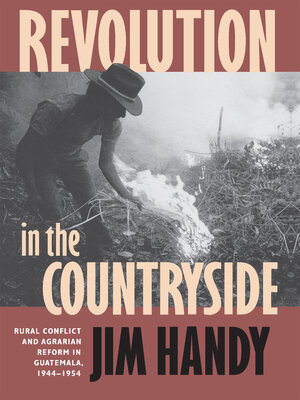Revolution in the Countryside
ebook ∣ Rural Conflict and Agrarian Reform in Guatemala, 1944-1954
By Jim Handy

Sign up to save your library
With an OverDrive account, you can save your favorite libraries for at-a-glance information about availability. Find out more about OverDrive accounts.
Find this title in Libby, the library reading app by OverDrive.



Search for a digital library with this title
Title found at these libraries:
| Library Name | Distance |
|---|---|
| Loading... |
Although most discussions of the Guatemalan "revolution" of 1944-54 focus on international and national politics, Revolution in the Countryside presents a more complex and integrated picture of this decade. Jim Handy examines the rural poor, both Maya and Ladino, as key players who had a decisive impact on the nature of change in Guatemala. He looks at the ways in which ethnic and class relations affected government policy and identifies the conflict generated in the countryside by new economic and social policies. Handy provides the most detailed discussion yet of the Guatemalan agrarian reform, and he shows how peasant organizations extended its impact by using it to lay claim to land, despite attempts by agrarian officials and the president to apply the law strictly. By focusing on changes in rural communities, and by detailing the coercive measures used to reverse the "revolution in the countryside" following the overthrow of President Jacobo Arbenz Guzman, Handy provides a framework for interpreting more recent events in Guatemala, especially the continuing struggle for land and democracy.







